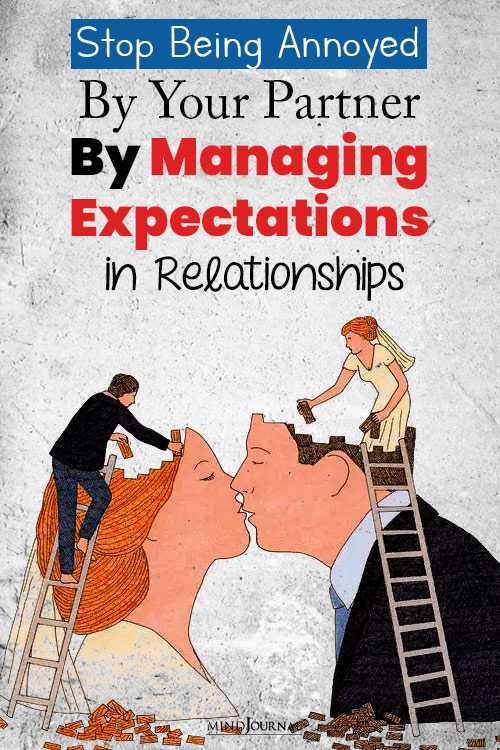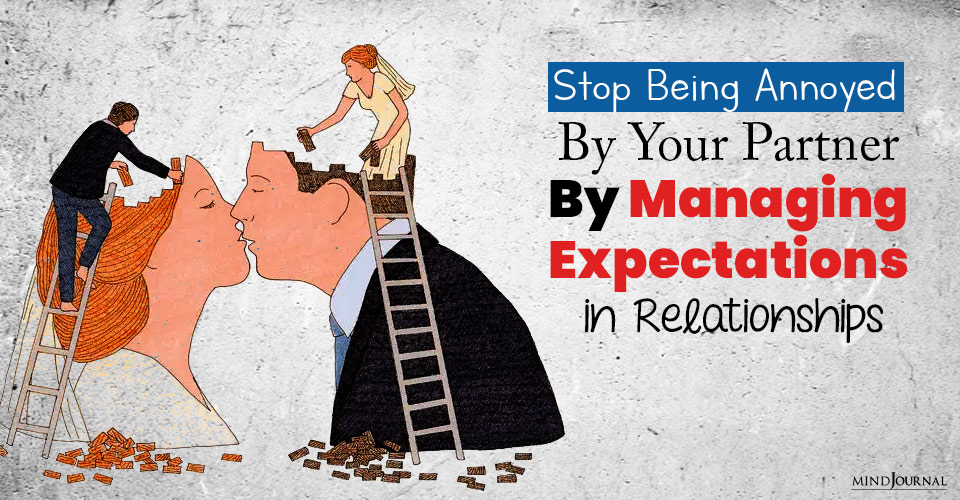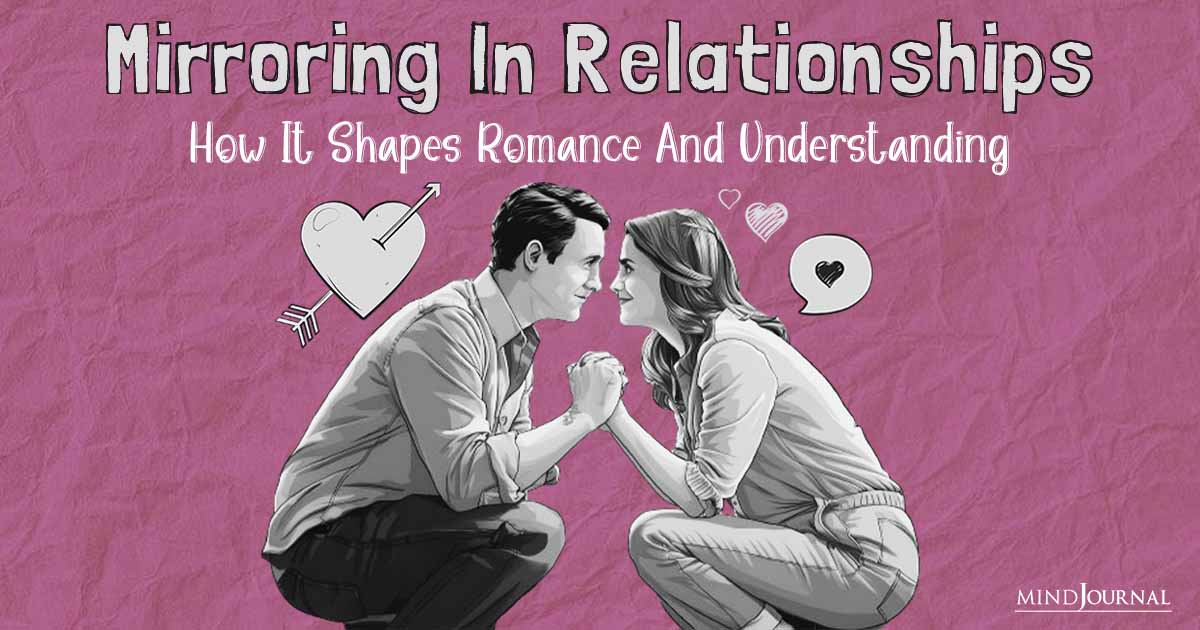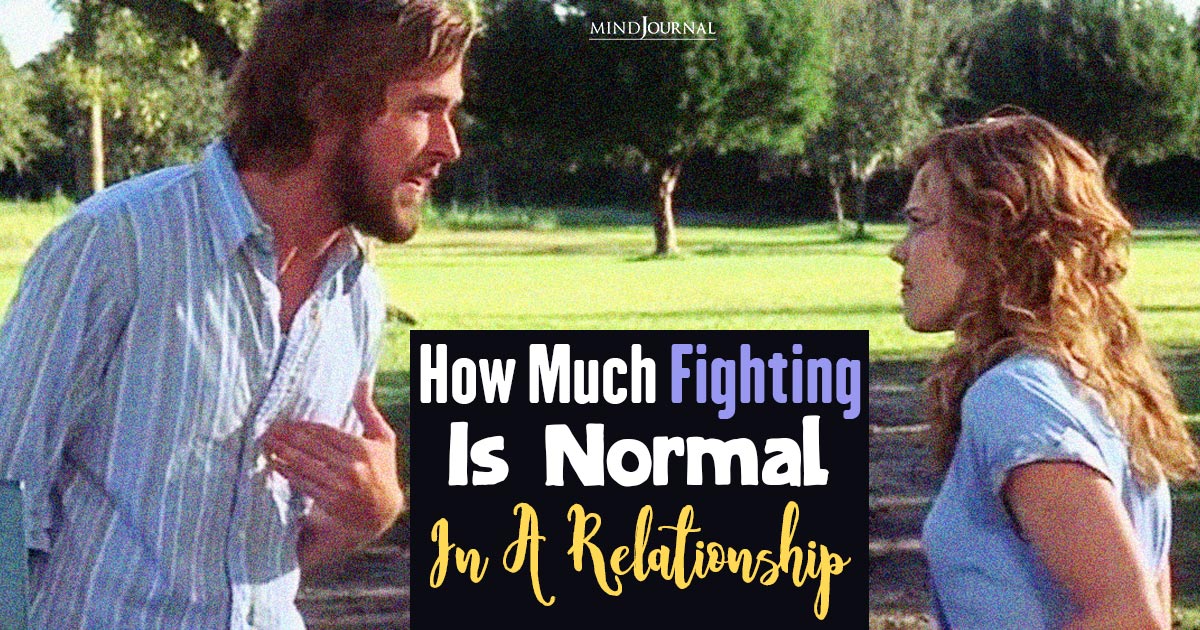Having expectations from your partner is good, and can even be healthy. But having unrealistic expectations, especially getting annoyed when your expectations doesn’t match with your partner’s, is a different thing altogether. This is kind of a territory we all want to avoid. If you want to stop being annoyed by your partner, managing expectations is the only way.
If something isn’t so great or it’s simply mediocre, most of us want to do our best to improve it — especially in a relationship or marriage. In fact, we typically want to ensure that our romantic relationships last and get better over time.
I’ve got a not-so-secret for you: even if we are constantly improving our relationships, without realistically managing expectations in relationships, you might find yourself feeling more and more annoyed and less and less in love.
As a coach and clinical sexologist, I often help my clients work to develop and manage healthy relationship expectations in order to improve the chances of their relationships lasting. And while there are a lot of things you can do together to give your love a boost — there are also several things you can do on your own!
Managing Expectations In Relationships By Changing Thoughts

The way we think about our relationship and our partner can have a big impact on how we experience our relationship. And so it’s important to think about – and possibly change – our thought patterns about our partner and our partnership.
For instance, when we hit a low in the relationship it’s not uncommon for us to harbor critical thoughts about our partner. We may think our partner’s selfish or doesn’t care about us. We may feel our partner’s got boring, or that they don’t do enough around the house.
And while these things, of course, can be completely true, sometimes our thought patterns about said behaviors are a bigger reason our relationship is suffering – and this is where managing expectations becomes critical.
The more you’re able to change how you think about your relationship – from something negative to something positive – the greater the chances are that you and your partner will enjoy each other, and your relationship will be stronger.
One way of going about this is by doing the following exercises.
Before you move on to the exercise, though, I just want to emphasize that all relationships have problems (even that loved-up couple who keep posting about each other on Facebook have them!).
And if you’re experiencing deep difficulties, the solution isn’t necessarily always changing the way you think about the problem. Still, it is a way that’s proven useful — so see if you’d like to give it a go.
Related: 5 Tips To Help Get Rid Of Negative Thoughts
An Exercise To Stop Being Annoyed With Your Partner
When our partner does something wrong – like forgetting to take the rubbish out on their way to work (as was promised) – our brain automatically tries to understand why our partner didn’t do what they said they would do.
According to relationship researcher Eli J. Finkel you can divide the brain’s understanding of this into these two categories:
- Temporary/Stable
- Inherent qualities/External qualities
The Temporary/Stable category is about how we perceive our partner’s behavior from a time perspective.
If we think about our partner’s behavior from a temporary perspective, we understand our partner’s failing to take the rubbish out, to be a coincidence. If we think in terms of our partner’s behavior as ”stable”, we see it as a ”classic” for our partner. It’s typical for our partner not to take the rubbish out.
The Inherent qualities/external qualities category is about what we ascribe to the behavior.
If we think our partner failed to take the rubbish out because, for instance, they easily get tunnel vision in the morning when so much has to be done. Then, the behavior is part of the inherent quality of our partner.
But if we think our partner left the rubbish behind because the fire alarm went off, and they had to get out quickly – well, then it’s about an external factor our partner couldn’t control.
You see how the same behavior, thought about in different ways, can either increase annoyance or reduce it – pointing to how powerful changing our thoughts truly can be.
How These Categories Work Together
The factors above may coincide in various ways. We may, for instance, explain their behavior the following way:
- Temporary and internal qualities: my partner left the rubbish behind because they’re ill, at the moment.
- Or stable and internal qualities: my partner never pays attention to what I want when it comes to housework.
The above examples really showcase how our thoughts about a particular situation affect our mood. And how managing expectations in relationships isn’t about lowering them, but rather, viewing our partner differently.
The point isn’t that our partner doesn’t have annoying traits, because, let’s be honest — we all do. However, using this exercise can be helpful if we find ourselves being constantly annoyed by everything our partner does!
One thing to consider when using this exercise is that we will likely never know for sure why our partner behaves the way they do in every scenario (even if we ask them!). And perhaps always understanding isn’t even desirable – at least if we want to retain the relationship we have with them!
For this reason, and for us both to feel good in our relationship, it can be useful to give our partner the benefit of the doubt.
So, going back to the example about taking out the rubbish…
Rather than thinking that our partner didn’t forget about the rubbish, and instead simply didn’t bother to take it out because they’re selfish (an analysis built on the combination of stable and inherent qualities), we may instead think that our partner had a lot to do this morning. That our partner simply didn’t have the time (an analysis built on temporary, external qualities).
When we think in this way we increase the happiness in the relationship, and thus also, the durability. Now, take a minute and think about something your partner did today or last week, that irritated or upset you.
- How does your partner’s behavior make you feel when you look at the different categories: temporary/stable, and internal/external qualities?
- Are you open to working on your thoughts by using these categories and seeing what happens during the course of a day or a week?
- If not – how come?
- If yes – how can you best remind yourself to use this exercise throughout your day or week?
An Exercise On Idealizing Our Partner
One really interesting and contradictory way of managing expectations in relationships has to do with idealizing our partner. Now, crazy as this may sound, give me a minute and I think you’ll find it pretty intriguing!
Researcher Sandra Murray found that those who idealized some of their partner’s traits actually stood a better chance of creating a long-lasting relationship.
Idealizing our partner’s qualities hasn’t only been proven effective in a given situation, it also positively affects the way we perceive our partner’s less attractive traits.
If we for example idealize our partner’s ability to always look after others, it may soften the way we think about our partner’s less endearing qualities. Like them never remembering Valentine’s Day, or forgetting to give our children their vitamins in the morning.
Another way of doing this exercise is applying it to the positive things our partner does. By thinking of their positive aspects – like baking a cake for us on a Sunday – as depending on internal and stable qualities (our partner’s a nice and caring person), this behavior becomes even more positive to us.
Compare that to thinking that the cake baking was only due to our partner having more time on their hands (temporary and external quality). Then that cake won’t taste half as good in your mouth.
Related: 12 Prescriptions for Happiness That Will Change Your Life
Take A Minute And Think About Your Partner:
- What are their most attractive qualities?
- Now, what are some things your partner does that you appreciate? Try and think of a slightly mundane. For example, the baking of a cake
- What happens if you try and idealize one of these more mundane things they do?
- How do you feel about your partner now?
Maybe you don’t feel much of a change after doing this exercise – or maybe you do. The trick is to keep at it and notice the shifts over time!
Long-Lasting Love
When it comes to creating a relationship that lasts over time, the goal isn’t to try and eliminate all annoyances. We are only human and most relationships can withstand conflict.
However, if you want to make your relationship even better, and feel less annoyed, working on things like managing expectations in relationships, can be really helpful.
Next time you notice you’re getting a bit heated because your partner left the rubbish behind (despite promising not to) – pause. And try to think differently. By changing your view of your partner you might just notice you start to feel more of those butterflies and less annoyance.
Originally published on LeighNoren.com.








